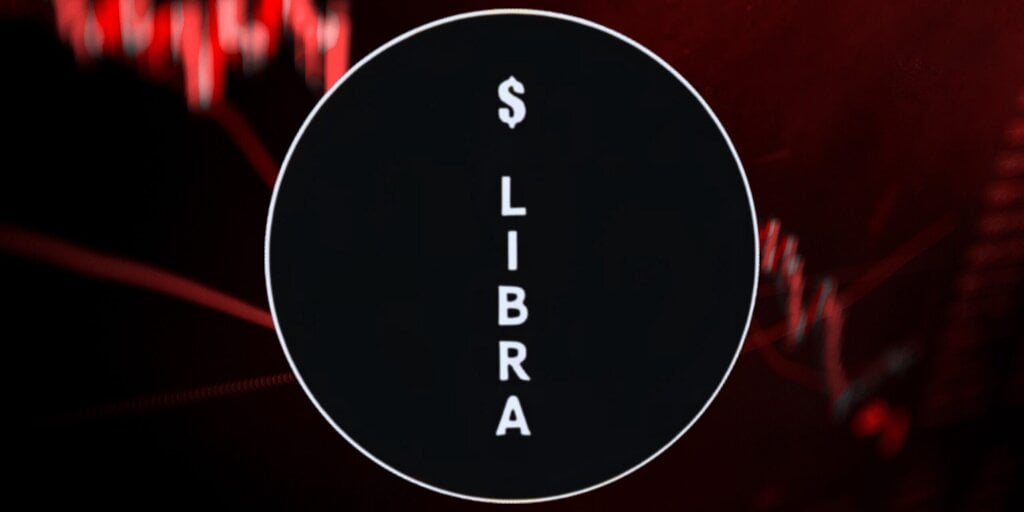After a rough weekend that led to fraud charges being leveled against Argentine President Javier Milei for his alleged involvement in the promotion of the LIBRA token, on-chain evidence and a damning insider interview have surfaced details on how exactly the Solana meme coin has turned into a multi-million dollar scandal.
In press statements and tweets, Milei has denied having any advance knowledge of the project. But others involved in the project tell differing accounts. A detailed statement from KIP Protocol, a crypto and AI firm with prior dealings with the Argentine government, released early Monday strongly contests several key claims about their involvement in the LIBRA token launch.
The company maintains that a meeting with President Milei on October 19, 2024, was the “only occasion” on which its CEO Julian Peh met with Milei.
“There was no discussion or mention of any specific initiatives including the project (“Viva la Libertad”) and launching any tokens,” the company said.
No other employee met with the Argentine President, the firm claimed.
Parallel to these claims, a collaborative investigation done by blockchain analytics platform Bubblemaps and investigator and YouTuber Stephen Findeisen, better known as CoffeeZilla, has uncovered on-chain evidence suggesting the same entity behind LIBRA also orchestrated the failed launch of MELANIA, the meme coin promoted by U.S. First Lady Melania Trump.
“After analyzing cross-chain transfers and timing patterns, we’re highly confident this is the case,” Bubblemaps tweeted.
The investigation traced interconnected wallet activity between the projects, revealing how profits from one scheme funded the other through a series of cross-chain transfers.
A key Solana wallet labeled “P5tb4” accumulated over $2.4 million through early trading of the MELANIA token before moving funds to an Avalanche wallet “0xcEA” directly connected to the token’s creator, Bubblemaps explained in a tweet thread.
2/ There’s been speculation that MELANIA and LIBRA are tied to the same team, but without solid proof—until now.
After analyzing cross-chain transfers and timing patterns, we’re highly confident this is the case.
— Bubblemaps (@bubblemaps) February 17, 2025
That same Avalanche wallet later funded “DEfcyK,” identified as LIBRA’s main creator wallet on blockchain explorer Solscan, establishing a clear money trail between the projects.
The LIBRA token, which received a now-deleted endorsement from Argentine President Javier Milei on Friday, saw its market cap surge into the billions before crashing 95% after insiders removed $87 million in liquidity.
Similarly, the MELANIA token, promoted by the U.S. first lady in January, experienced an explosive rise before its value evaporated, leaving retail investors with heavy losses.
Bubblemaps’ analysis suggests that the same group may have executed several other token launches, including projects codenamed TRUST, KACY, VIBES, and HOOD, following similar pump-and-dump patterns.
“People are after my family”
In an interview posted on YouTube, Findeisen spoke with Hayden Davis, who was billed as a “representative of KIP Protocol.”
KIP Protocol CEO and Co-Founder Julian Peh had previously acknowledged that the firm was “involved” in Project Libertad, but claimed that, “our primary role is to help run the fund allocation to the Argentinian companies, and less on the token side,” adding that, “We are not the [market maker].”
During his interview with Findeisen, Davis identified himself as a “launch strategist” rather than the core team member, and admitted to orchestrating both the LIBRA and MELANIA meme coin launches.
This aligns with what KIP Protocol’s statement claims is Davis’ actual relationship with them.
“Mr. Davis had no and does not have any connection with the Argentine government and was presented by the KIP Protocol representatives as one of their partners in the project,” the protocol claimed.
Davis claimed Argentine President Javier Milei’s team initially backed LIBRA as a blockchain transparency experiment before distancing themselves when problems emerged.
“Despite prior commitments, Milei and his team unexpectedly changed their position, withdrawing their support and deleting all previous posts on social media,” Davis was quoted as saying in a prior report by the Associated Press.
These claims from Davis directly contradict KIP Protocol’s version of events. The company stated in a tweet that it was only informed about the token project around February 13, 2025, by Tech Forum Argentina organizer Mauricio Novelli.
“KIP did not initiate the project, it did not manage or direct the token launch process, and it did not receive any tokens pre or post-launch, and it did not profit from the token launch.”
STATEMENT
(the following statement was drafted with help of legal counsel)
On 16 Feb 2025, the Office of the Presidency of the Argentine Republic released a statement (the “Statement”) in relation to the ‘Viva La Liberdad’ Project (the “Project”).
The Statement contains…
— KIP Protocol (@KIPprotocol) February 17, 2025
A separate contentious revelation from Davis concerns “project sniping,” a process where teams front-run their own token launches.
Davis defended this process as “protection” against external traders who might crash prices, though he acknowledges the practice’s controversial nature.
“Every single one of these launches, that’s what happens, […] three to ten guys get these massive chunks.” Davis explained, describing teams’ dilemma between allowing aggressive traders to dominate or intervening in potentially manipulative ways.
In the interview, Davis confirmed rumors of an “insider benefit” deal with Dave Portnoy, founder of Barstool Sports, saying he refunded Portnoy $5 million that he lost as a result of the LIBRA launch—though Hayden admitted to regretting the refund because it was “unfair.”
Portnoy “knew about the launch,” Hayden said, adding that, “he had time to put $5 million together which he traded on this coin, then he loses the money ironically and you refund him.”
Decrypt has reached out to Portnoy for comment, and will update this article should he respond.
Davis also outlines possible solutions, including user refunds or a reinjection of liquidity into the LIBRA token, while emphasizing the complexity of his position.
“There’s what, $60 million on the bonding curve of liquidity that’s locked,” he said. “It’s not a rug, it’s a plan gone miserably wrong with $100 million sitting in an account that I’m the custodian of,” he added, claiming that he had been receiving death threats as a result of his involvement in LIBRA’s launch.
“The fact that I have control is also what’s making me a target and also protecting me because this is an international incident, this isn’t like some random scam,” Davis said.
“People are after my family,” he said, adding that because of the involvement of a president, “it’s a very different game.”
This story was updated on February 17 to reflect comments made by KIP Protocol.
Daily Debrief Newsletter
Start every day with the top news stories right now, plus original features, a podcast, videos and more.







